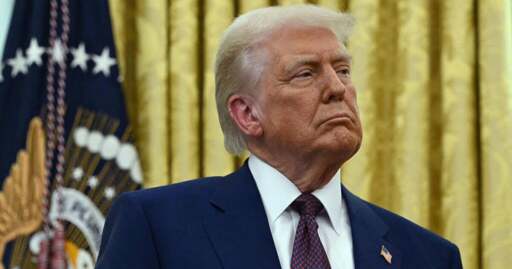Summary
A fourth federal judge has blocked Trump’s executive order seeking to end birthright citizenship, ruling it likely violates the 14th Amendment’s Citizenship Clause.
U.S. District Judge Leo Sorokin cited the 1898 Supreme Court case United States v. Wong Kim Ark, which upheld birthright citizenship.
The order, issued on Trump’s first day in office, denies citizenship to children born to undocumented or temporary visa holders. Multiple lawsuits challenge the order, and appeals are pending.
Sorokin warned the order could cause lasting harm to affected children.



Only the Supreme Court gets to decide what’s constitutional and what’s not. Not even the words of the constitution have that power.
I mean, not exactly… A lower court could rule that a law is unconstitutional, and SCOTUS could decide to not hear the case.
It’s kind of the same thing, though.
It’s not though. There is a very big difference when precedent is set by the Supreme Court. By refusing to hear the case, they are refusing to set any precedent, effectively kicking the can down the road. Giving the winning party a reprieve, but not a true win in any real sense of the word.
Either way it is up to the Supreme Court. If they want to set precedent they can. If they don’t want to, they don’t have to. Point being, it is up to the Supreme Court to decide what is constitutional or not.
Right, when they take up a case and make a decision, they decide that the thing is, definitively (or until a future SCOTUS decides to just ignore precedent), constitutional or not.
By refusing to take up a case, they are not making a statement either way about the constitutionality. It remains murky. It is not the same as ruling something is constitutional. There is a big difference.
Maybe reread my original comment, cause you keep making it sound like you’re disagreeing, but saying the exact same thing as what I said. The Supreme Court is at the core of all the decisions take up a case, don’t take up a case. Only the Supreme Court is making the decision.